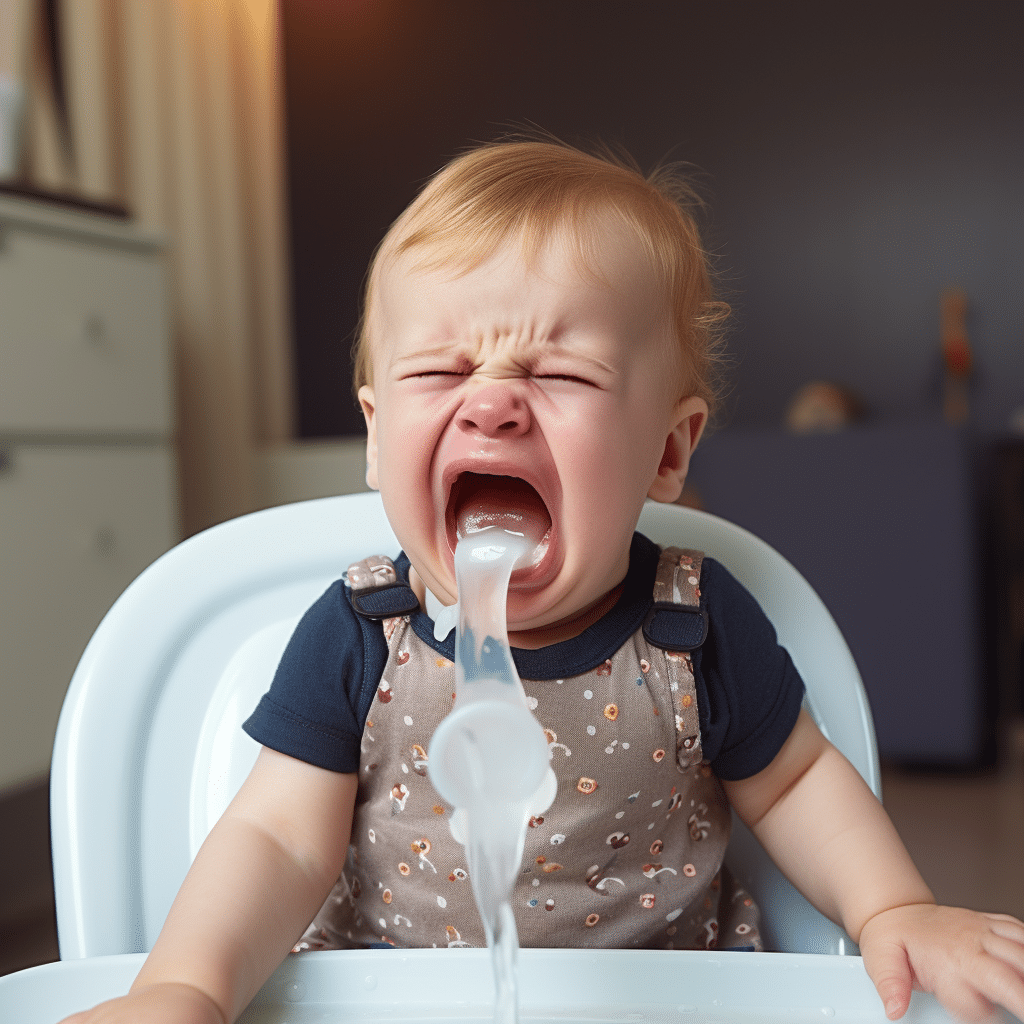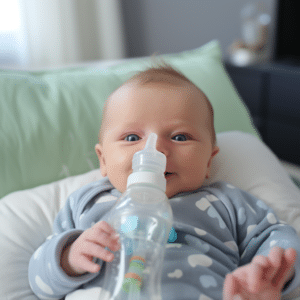
Baby Bottle Feeding: Reasons for Crying and Solutions
Baby Bottle Feeding Crying Solutions Do you have issues bottle-feeding your baby? Does your baby squirm and cry while bottle feeding? Do they appear to kick, fuss, squeal, or even refuse to take a bottle when given? If so, you’re in the right place as we’ve got answers for you. There are a wide variety of reasons why babies squirm while bottle feeding. Read on to learn more about why babies get so grizzly around bottle feeding time.

Reasons Your Baby Cries While Bottle Feeding
Your Baby Is Not Hungry
Your baby crying doesn’t always mean they are hungry. They could be sleepy, have a wet nappy, bored, want to play, etc. Sometimes your baby may show signs that they’re hungry when they’re not. For example, rooting, sticking tongue out, or sucking fingers.
Feeding your baby when they’re not hungry leads to troubled feeding. Your little one may accept the bottle offered and go ahead to cry while feeding. Others Baby Bottle Feeding Crying Solutions may become uncomfortable during the feeding period.
You’re Overfeeding Your Baby
Babies can overfeed, especially bottle-fed babies. It’s not easy for a breastfed baby to overfeed. The mechanisms through which breast milk is produced involve suckling. The more a child suckles the breast, the more milk is produced.
However, that’s not the case with bottle feeding. Feeding with a bottle doesn’t require a letdown and milk is readily available. This makes it easy for babies to overeat. A baby who has had enough may get uncomfortable feeding, resulting in squirms and cries.
Your Little One Is Teething
Teething can be another possible reason for trouble bottle feeding. During this time, usually around 3-4 months, babies experience pain due to the growing new teeth. The pain is very uncomfortable and can sometimes be accompanied by stomach upset and nausea. All these teething effects can make feeding hard. Some children even change their feeding routines and habits during this time.
Your Baby Is Overtired
Overtiredness can lead to feeding problems both in adults and kids. You may wonder how can your inactive baby become overtired? Babies need not do anything to become overtired. Too much brain activity through overstimulation can make kids fatigued.
Staying awake for a long time can also lead to overtiredness. Depending on your baby’s age, there’s an appropriate awake window for every age. And your kid staying awake for more than their appropriate awake window, can result in overtiredness.
Overtired babies may suck the bottle slowly. Some may become hyper, overactive, squirmy, or even cry during feeding. So, if you suspect your baby’s overtired, brainstorm ways of helping them get more sleep.
Your Baby Is Uncomfortable
Sometimes the little things you do matter. Your little one may be squirming while bottle feeding because they are uncomfortable. This could be due to a wet diaper, nappy that’s too tight, the way you hold them during feeding time, or the taste of the new formula you’ve changed.
While these things may seem small, they make all the difference, and can significantly affect your baby’s feeding habits. Or worse make them cry while feeding. So, next time try to make your baby comfortable before feeding and see if it will help.
Your Baby Is Distracted
Feeding your baby in a busy and noisy place can lead to distraction. Too many people and activities can be a lot for your child’s small brain to handle, leading to overstimulation. When a baby is overstimulated, they become absorbed and lost in their surrounding, and less interested in other things, including their body cues like hunger. Feeding a baby at such a time can make them resist the food and even begin crying.
Bottle Nipple Is Too Slow Or Too Fast
Nipples attached to baby feeding bottles come in different flow speeds. Some are fast while others are slow. A slow nipple flow may be ideal for young babies while a fast nipple flow suits best older babies. Whether your child breastfeeds or not also determines their ideal nipple flow.
If you’re unsure of whether to pick a fast or slow nipple slow, consult your pediatrician and they’ll guide you on the best way forward.
You’re Offering Too Many Night Feeds
Do you wake up often at night to feed your baby? Having too many night feeding times can hinder your baby from feeding well during the day. So, if you’re overdoing night feeding, that can explain your baby’s troubled daytime feeding.
Your Baby Is Undergoing A Growth Spurt/Developmental Milestone
A growth spurt refers to a period of rapid growth, both in weight and length. During this time, babies feed more than usual and are fussy.
Developmental milestones refer to the period when babies achieve new milestones in their motor and psychological development. They learn new skills like walking, talking, or crawling. Similar to growth spurts, developmental milestones are characterized by making babies fussy. This fussiness due to growth spurts and developmental milestones can make feeding challenging, resulting in squirms and cries.
How To Overcome Squirms And Cries During Bottle Feeding
Unless the reason for troubled feeding is beyond your means, you should find a fix for whatever reason preventing your child from feeding well. For instance, if your:
- Baby is not hungry: try feeding them another time. Say, one hour or two later.
- Overfeeding your baby: try letting them lead the pace for you.
- Baby is teething: consult your doctor on the best way out.
- Child is overtired: adjust their sleep, nap, and feeding routines accordingly.
- Little one is distracted: feed them in a quiet and relaxed place.
- Baby is uncomfortable: ensure they are dry, bathed, and held appropriately when feeding.
- Nipple bottle is too fast or too slow: adjust it to suit your child’s preference.
- Offering too many night feeds: stop it. Unless your child is below six months.
- Child is undergoing growth spurts or developmental milestones: try and find time to be with them, soothe and cuddle them until their fussiness subsides.

Conclusion
Baby Bottle Feeding Crying Solutions Dealing with a baby who squirms or cries while bottle feeding is not hard, but it’s not simple either. The most crucial thing is to know the root cause of the behavior and adjust accordingly. If all prove unsuccessful, consult your pediatrician as soon as you can.